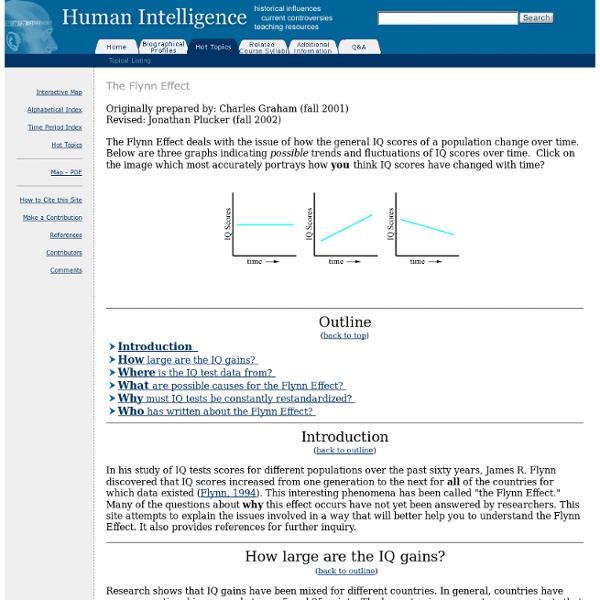Human Intelligence: The Flynn Effect

Strategy and Structure: Chapters in the History of the Industrial Enterprise - Alfred Dupont Chandler
Related:
Related:



